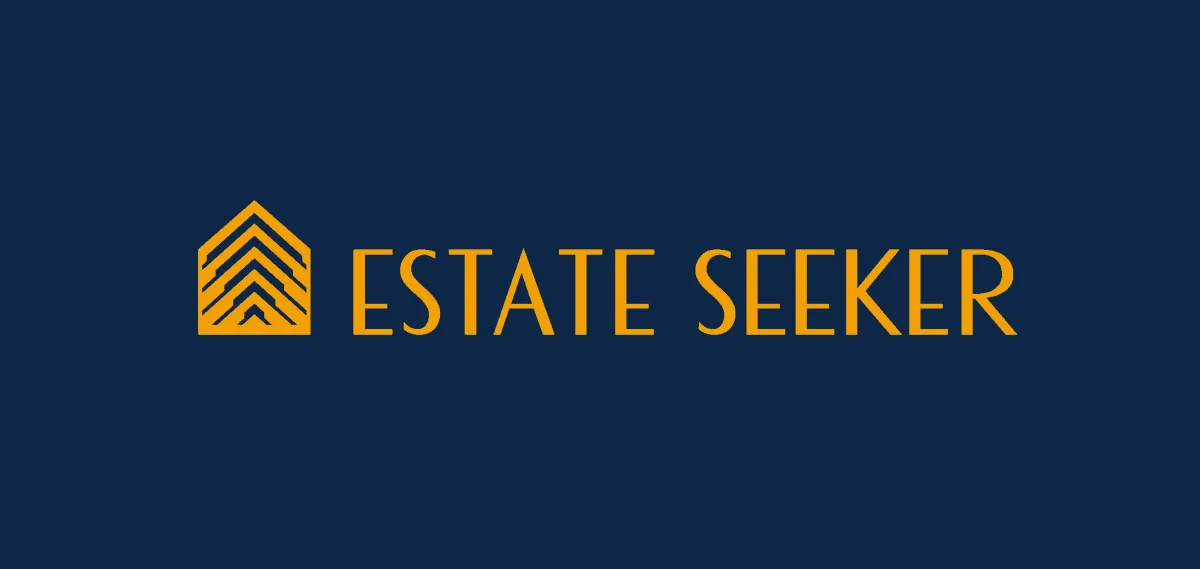Lenders Mortgage Insurance
Learn what Lenders Mortgage Insurance (LMI) is, how it works in Australia, how much it costs, and how to avoid it. Clear and easy-to-understand advice for first home buyers.
What is Lenders Mortgage Insurance (LMI)?
Watch this quick explainer to understand how Lenders Mortgage Insurance works in
Australia—and what it means for your home loan journey.
If you're buying your first home in Australia with a small deposit, chances are you've
come across the term Lenders Mortgage Insurance, or LMI. It might sound confusing,
but it’s actually pretty simple once you understand how it works.
What is Lenders Mortgage Insurance (LMI)?
Watch this quick explainer to understand how Lenders Mortgage Insurance works in Australia—and what it means for your home loan journey.
If you're buying your first home in Australia with a small deposit, chances are you've come across the term Lenders Mortgage Insurance, or LMI. It might sound confusing, but it’s actually pretty simple once you understand
how it works.
How LMI Works in Australia?
Lenders Mortgage Insurance is a one-time insurance premium that protects the lender
(not you) in case you can’t make your home loan repayments. In Australia, banks and
lenders usually require LMI if you have a home loan deposit of less than 20% of the
property value.
So if you're borrowing more than 80% of the purchase price, LMI will likely apply.
How Does LMI Help Me?
LMI helps borrowers by enabling them to purchase a property with a smaller deposit.
Without LMI, borrowers would typically need a 20% deposit to secure a home loan,
which can be a significant barrier for many first-time homebuyers.
By allowing for a lower deposit, LMI helps borrowers enter the property market sooner,
start building equity, and stop paying rent.
How LMI Works in Australia?
Lenders Mortgage Insurance is a one-time insurance premium that protects the lender
(not you) in case you can’t make your home loan repayments. In Australia, banks and lenders usually require LMI if you have a home loan deposit of less than 20% of the property value.
So if you're borrowing more than 80% of the purchase price, LMI will likely apply.
How Does LMI Help Me?
LMI helps borrowers by enabling them to purchase a property with a smallerdeposit. Without LMI, borrowers would typically need a 20% deposit to secure a home loan, which can be a significant barrier for many first-time homebuyers. By allowing for a lower deposit, LMI helps borrowers enter the property market sooner, start building equity, and stop paying rent.
Why Do Lenders Require LMI?
Lenders require LMI to mitigate the risk of lending a large amount of money when the
borrower has a small deposit. It provides a safety net for the lender in case the
borrower cannot repay the loan.
When is LMI Required?
LMI is typically needed when the borrower has a deposit of less than 20% of the
property’s value as assessed by the lender. This is often referred to as having a
Loan to Value Ratio (LVR) greater than 80%.
Why Do Lenders Require LMI?
Lenders require LMI to mitigate the risk of lending a large amount of money when the borrower has a small deposit. It provides a safety net for the lender in case the borrower cannot repay the loan.
When is LMI Required?
LMI is typically needed when the borrower has a deposit of less than 20% of the property’s value as assessed by the lender. This is often referred to as having a' Loan to Value Ratio (LVR) greater than 80%.
How Much Does LMI Cost?
The cost of LMI varies based on several factors:
Loan Amount
Borrower's credit score
Lender's Criteria
The higher the LVR, the higher the cost of LMI
For example, if you’re buying a $700,000 property with a 10% deposit, your
LMI could be anywhere from $10,000 to $15,000.
The smaller your deposit, the higher your LMI premium. A mortgage broker
can help you calculate your exact LMI cost based on your personal situation.
How Much Does LMI Cost?
The cost of LMI varies based on several factors:
Loan Amount
Borrower's credit score
Lender's Criteria
The higher the LVR, the higher the cost of LMI.
For example, if you’re buying a $700,000 property with a 10% deposit, your LMI could be anywhere from $10,000 to $15,000.
The smaller your deposit, the higher your LMI premium. A mortgage broker can help you calculate your exact LMI cost based on your personal situation.
Who Pays for LMI?
Even though the insurance covers the bank or lender, the cost is paid by the borrower
—that’s you.
LMI can be:
Paid upfront, or
Added to your home loan (which means you'll also pay interest on it over time)
How to Avoid Paying LMI?
Save a larger deposit (at least 20% of the property’s value).
Use a guarantor who can secure the loan with their property.
Opt for a lender that offers LMI waivers for certain professions or special
circumstances.
What Happens if I Default on My Loan?
If you default on your loan and the property is sold for less than the remaining loan
balance, the lender can claim the difference from the LMI provider. The LMI provider
may then seek to recover this amount from you.
Who Pays for LMI?
Even though the insurance covers the bank or lender, the cost is paid by theborrower—that’s you.
LMI can be:
Paid upfront, or
Added to your home loan (which means you'll also pay interest
on it over time)
How to Avoid Paying LMI?
Save a larger deposit (at least 20% of the property’s value).
Use a guarantor who can secure the loan with their property.
Opt for a lender that offers LMI waivers for certain professions or
special circumstances.
What Happens if I Default on My Loan?
If you default on your loan and the property is sold for less than the remaining loan balance, the lender can claim the difference from the LMI provider. The LMI provider may then seek to recover this amount from you.
Is LMI Good or Bad?
LMI isn’t necessarily a bad thing. It allows first home buyers in Australia to get into the
property market sooner, even if they haven’t saved a full 20% deposit. But it’s important
to understand the cost and factor it into your overall budget.
Key Points to Understand
LMI protects the lender, not you. If you default, the insurance covers the lender’s
loss, but you will still be responsible for repaying the insurer.LMI can be costly. It’s an added expense on top of your home loan.
LMI can help you buy sooner. If you can’t save a 20% deposit, LMI allows you to
enter the market with a smaller deposit.
Common Questions About LMI
Can I avoid LMI? Yes, by saving a larger deposit (at least 20% of the property's
value) or using a guarantor.
Is LMI refundable? No, LMI is generally not refundable, even if you pay off your
loan early.Does LMI protect me? No, LMI protects the lender, not the borrower.
Can LMI be transferred? No, if you refinance or switch lenders, you may need to
pay LMI again if your new LVR is above 80%.
Is LMI Good or Bad?
LMI isn’t necessarily a bad thing. It allows first home buyers in Australia to get into the property market sooner, even if they haven’t saved a full 20% deposit. But it’s important to understand the cost and factor it into your
overall budget.
Key Points to Understand
LMI protects the lender, not you. If you default, the insurance covers
the lender’s loss, but you will still be responsible for repaying the insurer.LMI can be costly. It’s an added expense on top of your home loan.
LMI can help you buy sooner. If you can’t save a 20% deposit, LMI
allows you to enter the market with a smaller deposit.
Common Questions About LMI
Can I avoid LMI? Yes, by saving a larger deposit (at least 20% of the
property's value) or using a guarantor.Is LMI refundable? No, LMI is generally not refundable, even if you pay
off your loan early.Does LMI protect me? No, LMI protects the lender, not the borrower.
Can LMI be transferred? No, if you refinance or switch lenders, you may
need to pay LMI again if your new LVR is above 80%.
Need Help with Your Home Loan?
If you’re unsure whether Lenders Mortgage Insurance (LMI) applies to your situation—or
want to explore if you qualify for LMI-free home loan options—we highly recommend
speaking with an expert mortgage broker. They can guide you through your options and
help you make the best decision for your financial goals.
Connect with the team at Win Square Finance for a free consultation and take the next
step toward home ownership with confidence.
Need Help with Your Home Loan?
If you’re unsure whether Lenders Mortgage Insurance (LMI) applies to your situation—or want to explore if you qualify for LMI-free home loan options—we highly recommend speaking with an expert mortgage broker.
They can guide you through your options and help you make the best decision for your financial goals.
Connect with the team at Win Square Finance for a free consultation and take the next step toward home ownership with confidence.
Related Topics
Understand how lenders determine your borrowing power and what factors impact loan approval. Learn how to improve your eligibility and maximise your home loan options.
Buying property comes with legal work — but who should you hire? We break down what conveyancers and solicitors do, their key differences, and how to choose the right one for your situation.
A high LVR could mean extra costs, while a low LVR can save you thousands. Find out why lenders care so much about this number.
© 2025 Estate Seeker.com.au - All Rights Reserved. Content on this site is for educational purposes only.
Always consult with a professional before making any investment decisions.






